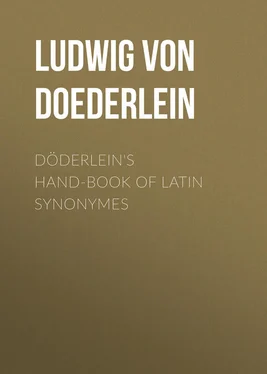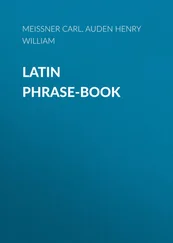Cudere, see Verberare .
Cudo, see Cassis .
Culcita; Pulvinus; Pulvinar. Culcita (from calcare?) is a hard-stuffed pillow; pulvinus and pulvinar, a soft elastic pillow; pulvinus, such as is used on ordinary civil occasions; pulvinar, such as is used on solemn religious occasions. (vi. 89.)
Culmen; Fastigium. Culmen means the top, the uppermost line of the roof; fastigium, the summit, the highest point of this top, where the spars of the roof by sloping and meeting form an angle; therefore fastigium is a part of culmen. Virg. Æn. ii. 458. Evado ad summi fastigia culminis . Liv. xl. 2. Vitruv. iv. 2. Arnob. ii. 12. And figuratively culmen denotes the top only, with a local reference, as the uppermost and highest point, something like κολοφών; but fastigium with reference to rank, as the principal and most imposing point of position, something like κορυφή; therefore culmen tecti is only that which closes the building, but fastigium that which crowns it; and fastigium also denotes a throne, whence culmina montium is a much more usual term than fastigia . (ii. 111.)
Culmus; Calamus; Stipula; Spica; Arista; Arundo; Canna. 1. Culmus means the stalk, with reference to its slender height, especially of corn; calamus (κάλαμος) with reference to its hollowness, especially of reeds. 2. Culmus means the stalk of corn, as bearing the ear, as the body the head, as an integral part of the whole; stipula, as being compared with the ear, a worthless and useless part of the whole, as stubble. 3. Spica is the full ear, the fruit of the corn-stalk, without respect to its shape, arista, the prickly ear, the tip or uppermost part of the stalk, without respect to its substance, sometimes merely the prickles. Quintil. i. 3, 5. Imitatæ spicas herbulæ inanibus aristis ante messem flavescunt. 4. Calamus, as a reed, is the general term; arundo (from ῥοδανός) is a longer and stronger reed; canna (from κανών?) a smaller and thinner reed. Colum. iv. 32. Ea est arundineti senectus, cum ita densatum est, ut gracilis et cannæ similis arundo prodeat. (v. 219.)
Culpa; Noxia; Noxius; Nocens; Sons. 1. Culpa (κολάψαι) denotes guilt as the state of one who has to answer for an injury, peccatum, delictum, maleficium, scelus, flagitium, or nefas; hence a responsibility, and, consequently, a rational being is supposed, in opp. to casus
Конец ознакомительного фрагмента.
Текст предоставлен ООО «ЛитРес».
Прочитайте эту книгу целиком, купив полную легальную версию на ЛитРес.
Безопасно оплатить книгу можно банковской картой Visa, MasterCard, Maestro, со счета мобильного телефона, с платежного терминала, в салоне МТС или Связной, через PayPal, WebMoney, Яндекс.Деньги, QIWI Кошелек, бонусными картами или другим удобным Вам способом.
Hence animalium cadavera , not animantium .












